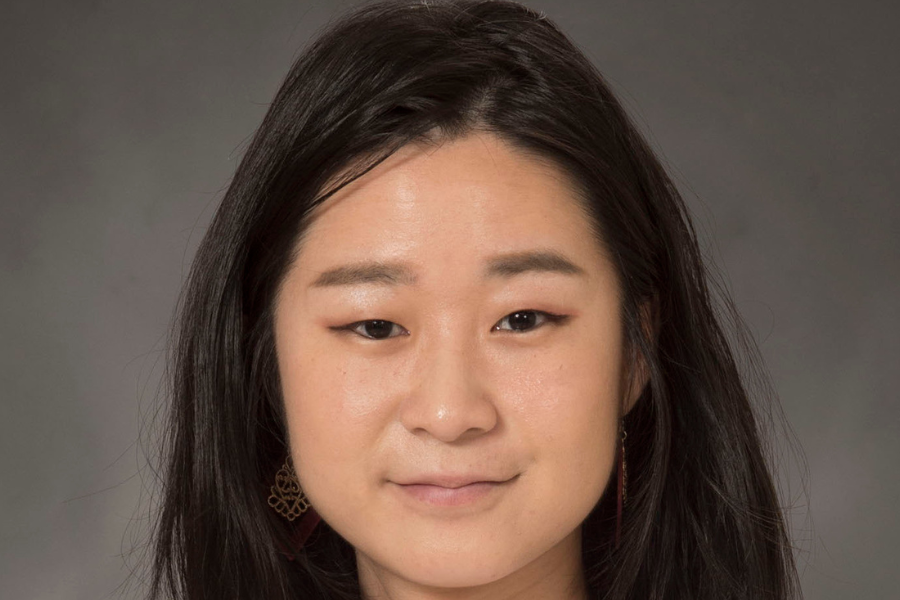Emily Lu

"Education and knowledge are power."
College: Arts and Sciences
Degree Program: History
Degree: Doctoral
Award: Fulbright-Hays DDRA (2023)
Why FSU?
I first came in contact with FSU's Department of History in Spring 2019 when I came to Tallahassee to present at the department's annual graduate conference. Knowing that I was looking for a PhD program in History, Dr. Suzy Sinke, then graduate program coordinator, along with others, kindly assembled an itinerary for me to get to know the department and the institution, which I found extremely hospitable and charming. Dr. Annika Culver, my major advisor, was kind and welcoming. I knew then that Dr. Culver's passion and vigor as a mentor and her areas of expertise would align with my research interest. FSU also has one of the most beautiful campuses I've ever seen! The trip left a deep impression on me.
Motivation to pursue a graduate degree
While I still had a passion for performing arts, I knew in my senior year of undergrad that I wanted to change my career path and become a historian, namely a college professor. I had the pleasure of meeting and being influenced by many open-minded professors in my undergrad history courses, who helped broaden my horizons. I knew that I wasn't done learning, and I appreciated higher education for advocating and fostering a learning environment. I also had opinions more suited to be expressed in academia and questions that I was only able to find answers to through graduate studies and research in the humanities.
Importance and/or impact of research and work
Wartime Japanese military music, or gunka, is a neglected area of study, in both anglophone and Japanese scholarships, although slightly more popular within the latter. This music was a form of art that essentially served as propaganda for wartime mobilization efforts. Yet, the melody and lyrics, when detached from the imperialist context, can be so hauntingly enchanting, that I couldn't help but find myself fascinated by this duality. The legacy of respective (wartime) music cultures still manifests today across various societies, not just Japan. However, what makes the Japan and the East Asia narratives so interesting to me is that gunka, the music that is supposed to laud the military, reflected so much of the "folk" element in a transnational setting: be it among those on the Japanese home front, or even indigenous cultures in imperial Japan's outer periphery. To me, gunka and music at large provides a way to study and memorialize the cultures and struggles of the people, more so than the "big players." Lastly, World War II remains a touchy subject in East Asia, I think that investigating an art and cultural form could help prompt conversations from an alternative approach.
Describe your Fulbright experience
My experience applying to the Fulbright had been a rollercoaster ride but overall an eye-opening one. I first applied to the Fulbright U.S. Student Program, for which I began my application writing half a year in advance. I had outstanding faculty members from my comps and dissertation committees, who were all supportive of my endeavor. I was not ultimately made a finalist and became somewhat discouraged. I then discovered the Fulbright-Hays Doctoral Dissertation Research Abroad (DDRA) Fellowship last minute and had to race against the clock in order to put together an application. Dr. Keith McCall at OGFA provided me with immense support and guidance throughout the entire process, and I am very grateful to him and the office.
Career aspirations
I would like to teach history integrating multidisciplinary approaches at the college-level, and ideally continue to research and publish.
Advice for anyone considering graduate school
Find a department with supportive and transparent faculty members and colleagues who want to help each other succeed. I personally think that instead of going only for the "big names," it is better to find one that will be suitable for you and provide a healthy learning environment for its students. You must believe in your ability and potential, and recognize your worth both as a scholar and a human being.
Accomplishments during graduate career
I am proud to have received the Fulbright-Hays DDRA and the Ermine M. Owenby Jr. Travel Award. I am also proud to have presented and had my proposal accepted at various graduate- and national-level conferences with the following organizations/institutions: American Historical Association, Association of Asian Studies, Society of Ethnomusicology, Asian Studies Graduate Conference at the University of Colorado Boulder, and Graduate Conference for Department of Religion at Boston University.
